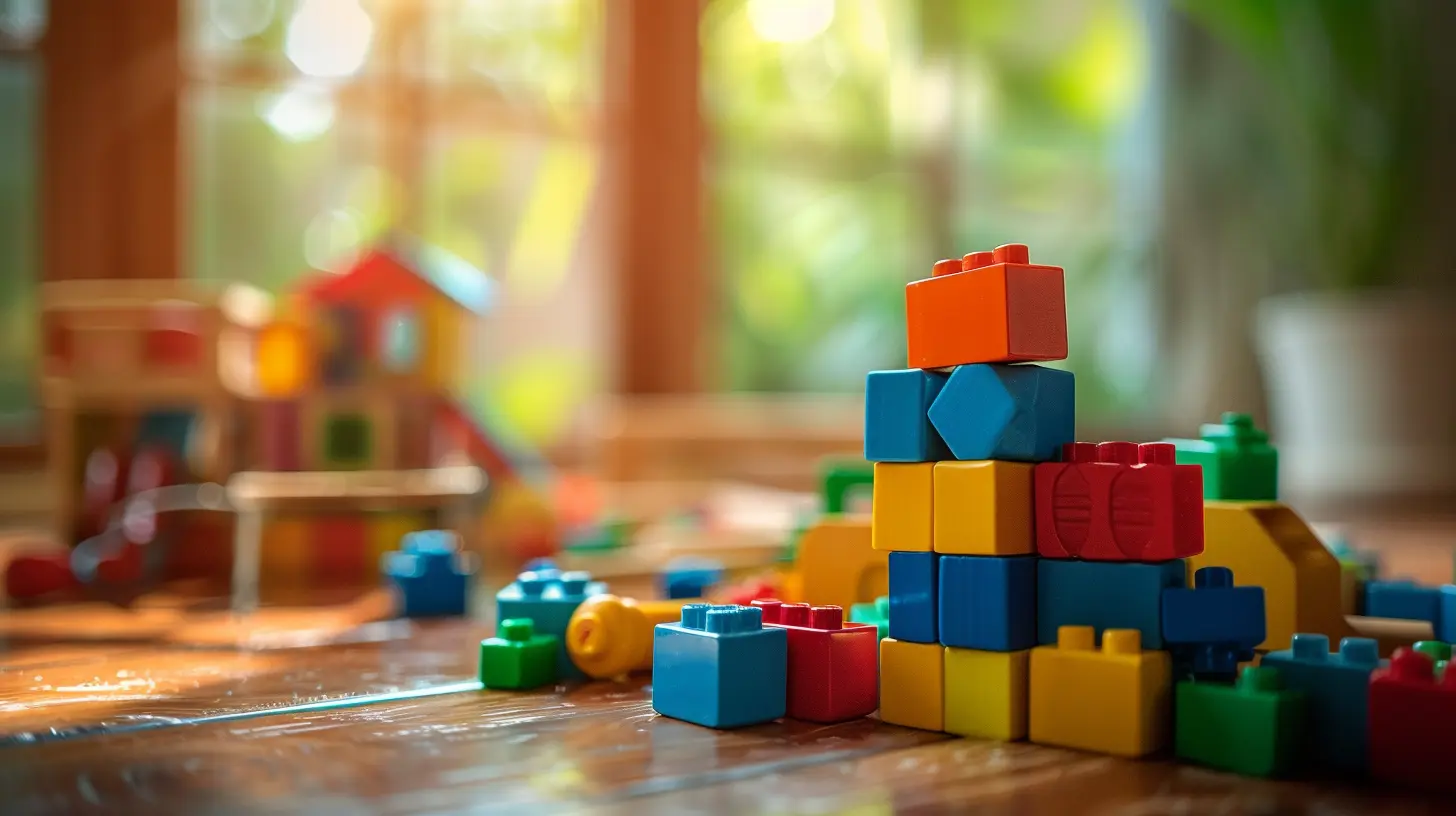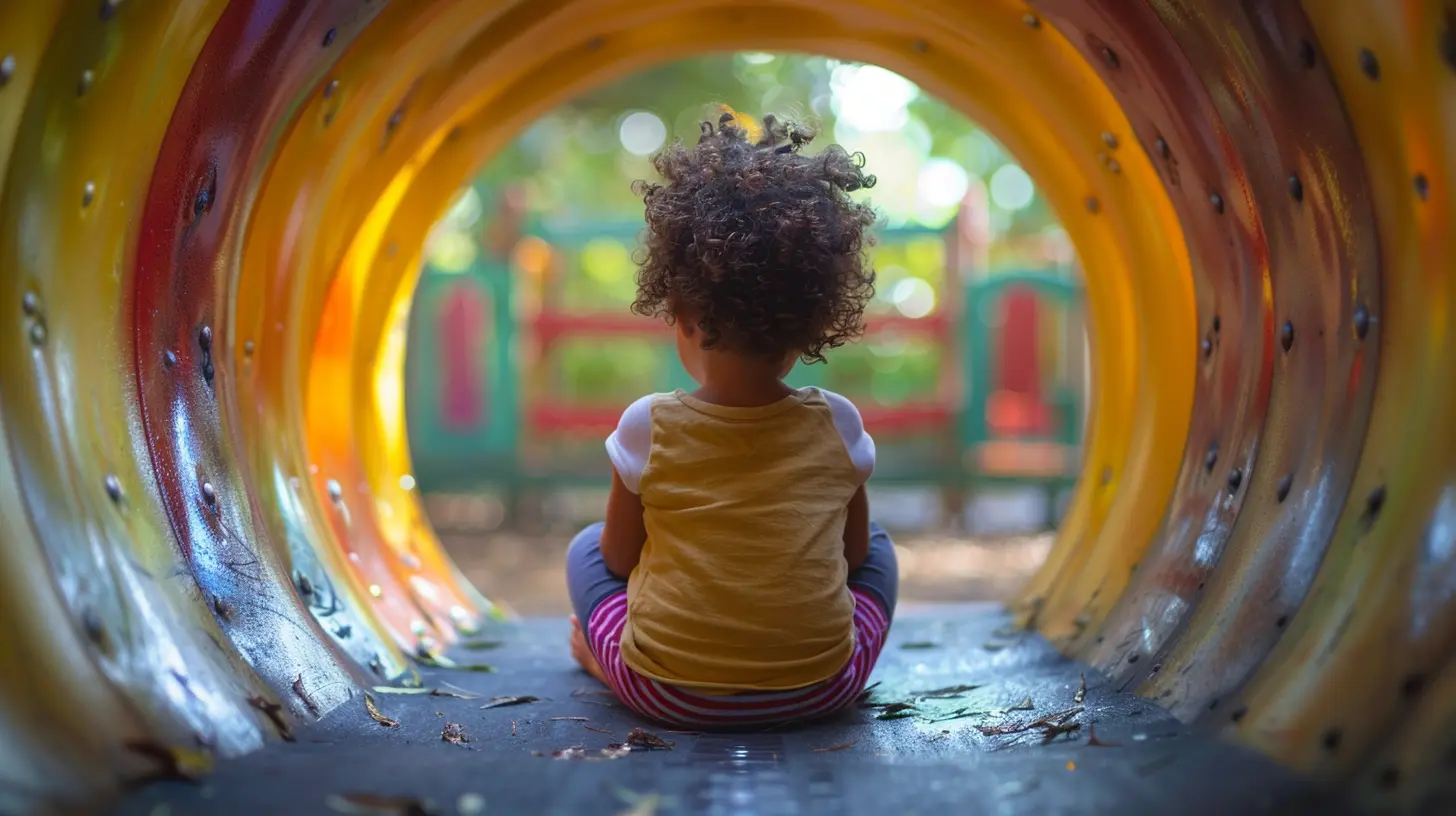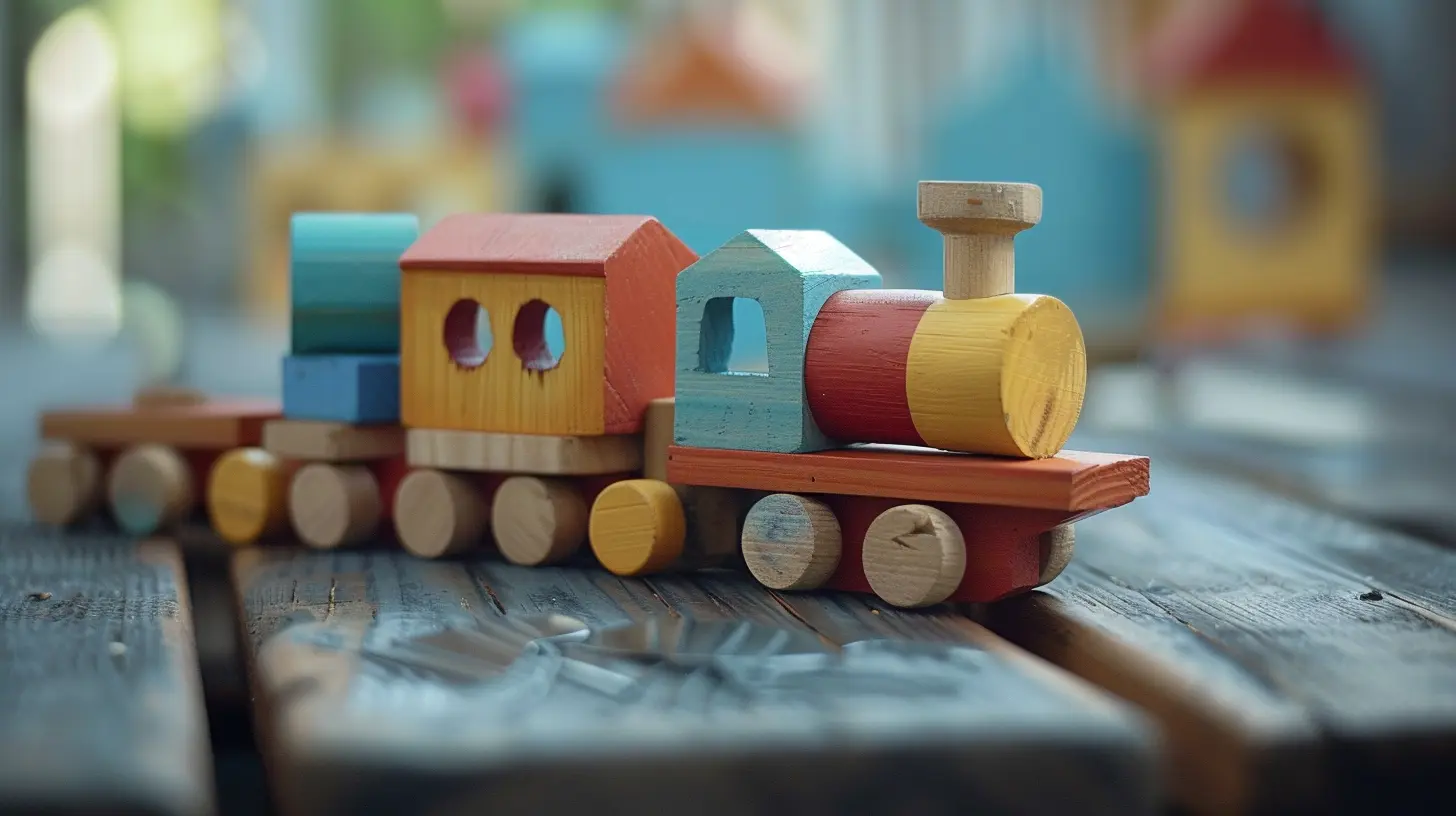Why Pretend Play is Crucial for Your Child’s Development
15 March 2025
Ever watched your little one transform into a pirate, a doctor, or a superhero within a matter of seconds? That’s pretend play in action! It may just look like harmless fun, but it’s actually a critical part of your child’s growth. Pretend play isn’t just about keeping them entertained—it helps develop essential life skills that shape their future.
So, let’s dive into why pretend play is more than just adorable tea parties and epic space adventures.

What is Pretend Play?
Pretend play (also known as imaginative or make-believe play) happens when kids use their creativity to role-play different scenarios. Whether they’re hosting a stuffed animal tea party, playing house, or fighting off imaginary dragons, they’re engaging in a type of play that builds cognitive, social, and emotional skills.But why is this so important? Let’s break it down. 
Benefits of Pretend Play for Child Development
1. Boosts Cognitive Skills
When your child pretends to be a chef cooking up a storm in their toy kitchen, they’re doing more than just flipping plastic pancakes. They’re thinking critically, planning sequences, and enhancing problem-solving skills.Pretend play encourages:
- Decision-Making – "Should I serve spaghetti or pizza to my teddy bear?"
- Cause and Effect Thinking – "If I mix these colors together, what will I get?"
- Memory and Recall – "Last time I played doctor, I used this tool for check-ups!"
All these cognitive processes prepare kids for real-life problem-solving down the road.
2. Enhances Social and Emotional Development
Ever noticed how kids love playing "mommy and daddy" or pretending to be teachers? Through these role-playing scenarios, they learn how to navigate social interactions, understand different perspectives, and develop empathy.- Communication Skills – Talking to their "patients" while playing doctor helps them practice language and expression.
- Emotional Regulation – Pretending to soothe a crying baby doll teaches them empathy and patience.
- Conflict Resolution – Deciding who gets to be the superhero and who plays the villain fosters negotiation skills.
In short, pretend play helps kids grow into emotionally intelligent and socially adept individuals (and increases their chances of making lifelong friends!).
3. Sparks Creativity and Imagination
Give a child a cardboard box, and they might turn it into a spaceship, a castle, or even a race car. That’s the magic of imagination! Pretend play fuels creativity by allowing kids to think outside the box—sometimes literally.- Encourages Innovation – They learn that everyday objects can have endless possibilities.
- Builds Storytelling Skills – Inventing adventures strengthens their ability to craft stories and express ideas.
- Develops Original Thinking – Instead of following a set of rules, they create their own worlds and narratives.
Creativity isn’t just for artists—it’s a skill that powers future inventors, leaders, and problem solvers.
4. Strengthens Language and Communication Skills
Whether they’re playing shopkeeper, pirate, or astronaut, pretend play naturally expands a child’s vocabulary. They hear and use new words in context, improving both comprehension and expression.- Expands Vocabulary – "May I take your order?" introduces restaurant lingo.
- Practices Sentence Formation – "Captain, we have a problem!" helps with phrasing.
- Encourages Expressive Speech – Acting out different emotions makes communication more dynamic.
It’s like a fun, interactive language lesson—without the boring flashcards!
5. Supports Physical Development
You might not think of pretend play as exercise, but it absolutely is! Whether they’re running from a dragon, dancing at a royal ball, or building a pretend fort, they’re engaging in physical activity that improves coordination and motor skills.- Fine Motor Skills – Dressing dolls, stacking blocks, and using pretend kitchen utensils refine hand-eye coordination.
- Gross Motor Skills – Jumping, running, and balancing during their imaginary missions build strength and agility.
So, the next time your child zooms around the house as a superhero, remember—they’re getting a mini workout, too!
6. Builds Confidence and Independence
Through pretend play, children get to take charge of their world. Whether they’re running a pretend business or playing teacher, they’re making decisions and feeling in control. This boosts their self-esteem and sense of independence.- Encourages Leadership – Assigning roles and directing play boosts confidence.
- Teaches Responsibility – Playing "parent" or "doctor" instills a sense of care and duty.
- Promotes Problem-Solving – Navigating different scenarios helps them think on their feet.
Confidence built in make-believe worlds often translates into real-world courage later on. 
How to Encourage Pretend Play
Now that we know why pretend play is essential, how can we encourage it? Luckily, it doesn’t require expensive toys or elaborate settings—just a little creativity!1. Provide Open-Ended Toys
Toys that don’t have a fixed purpose encourage imagination. Items like building blocks, dolls, dress-up clothes, and play kitchens let kids create their own narratives.2. Use Everyday Household Items
A cardboard box can become a car, a spaceship, or a castle. Old clothes can turn into costumes. Pots and pans? Instant drum set!3. Join the Fun!
Sometimes, kids just need a little push. Play along by letting them serve you "tea," rescue you as a superhero, or read you a pretend story.4. Encourage Outdoor Adventures
Nature provides the best backdrop for imagination. A backyard can transform into a jungle, a pirate ship, or a fairy kingdom.5. Limit Screen Time
While screens can be educational, too much structured entertainment can stifle creativity. Giving kids free time without digital distractions encourages them to use their imagination more.
Final Thoughts
Pretend play isn’t just about fun and games—it’s a powerful tool for your child’s growth. From boosting creativity and social skills to enhancing cognitive development, imaginative play lays the foundation for lifelong learning.So next time you see your child talking to their stuffed animals or pretending to be a superhero, don’t dismiss it as just play. They’re building skills, exploring emotions, and crafting the foundation for their future—one imaginative adventure at a time!
all images in this post were generated using AI tools
Category:
Child DevelopmentAuthor:

Liam Huffman
Discussion
rate this article
8 comments
Genevieve Walker
Absolutely! Pretend play sparks imagination and builds essential skills!
April 3, 2025 at 3:28 AM

Liam Huffman
Thank you! Indeed, pretend play is a vital tool for nurturing creativity and essential life skills in children.
Orionis Cain
Absolutely loved this article! It's amazing how pretend play sparks creativity and builds essential skills in our little ones. Watching my kids dive into their imaginative worlds reminds me that play truly is the foundation of learning. Such an important reminder for all parents! Thank you!
March 26, 2025 at 4:04 AM

Liam Huffman
Thank you so much for your kind words! I'm glad you found the article valuable and appreciate your insights on the importance of pretend play in development.
Brigitte Peterson
This article beautifully highlights the importance of pretend play in childhood development. It fosters creativity, enhances social skills, and encourages problem-solving. As parents, we should actively engage in and support our children's imaginative play, as it lays the foundation for their emotional and cognitive growth.
March 21, 2025 at 3:56 AM

Liam Huffman
Thank you for your thoughtful comment! I’m glad you found the article highlights valuable. Supporting pretend play is indeed vital for children's growth!
Calyx Richardson
Pretend play is the canvas where children's imaginations flourish, enabling them to explore complex emotions, enhance problem-solving skills, and build social connections. In this safe space of make-believe, they not only create worlds but also learn to navigate the intricacies of their own.
March 19, 2025 at 5:13 AM

Liam Huffman
Thank you for capturing the essence of pretend play so beautifully! It truly is a vital tool for fostering creativity, emotional intelligence, and social skills in children.
Ian Ford
Thank you for this insightful article! I’ve seen firsthand how pretend play enriches my child's creativity and social skills. It's such an important part of growing up!
March 16, 2025 at 3:48 PM

Liam Huffman
Thank you for your kind words! I'm glad to hear how pretend play has positively impacted your child's creativity and social skills. It's indeed vital for development!
Heidi Wheeler
Great insights! Pretend play truly fosters creativity and social skills in children. Thank you!
March 16, 2025 at 5:17 AM

Liam Huffman
Thank you! I'm glad you found the insights valuable. Pretend play is indeed vital for fostering creativity and social skills in children!
Freya Sharpe
Essential for creativity.
March 15, 2025 at 4:21 PM

Liam Huffman
Absolutely! Pretend play stimulates imagination and fosters innovative thinking in children.
Berenice McKibben
Absolutely! Pretend play fosters creativity and emotional growth.
March 15, 2025 at 5:25 AM

Liam Huffman
Thank you! Absolutely, pretend play is essential for nurturing both creativity and emotional intelligence in children.
MORE POSTS

The Benefits of Teaching Your Kids About Mindful Eating

Strategies for Avoiding Over-scheduling Your Family

How to Make Family Bonding a Positive Experience

Encouraging Independence and Confidence in a Positive Way

How to Encourage a Love for Nature in Your Preschooler

How to Build a Calm and Nurturing Home Environment for Your Preschooler